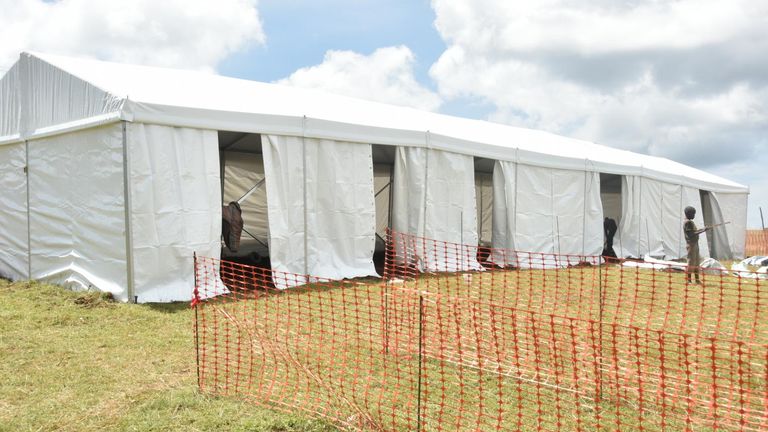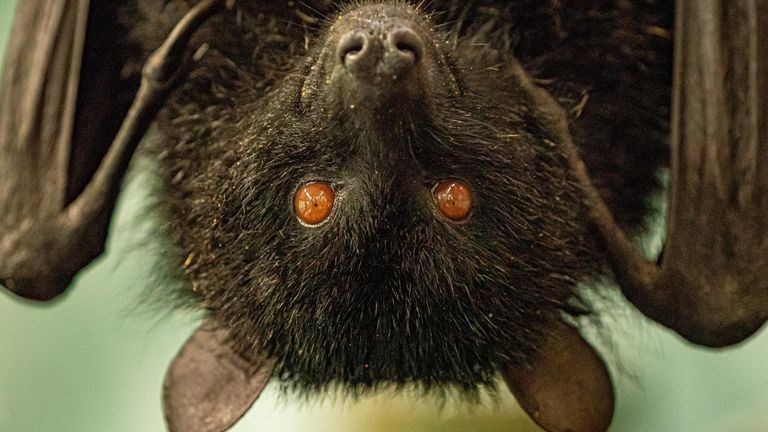What is Marburg virus? The Ebola-like disease spreading in parts of ...
A Marburg virus outbreak has been detected in Equatorial Guinea, prompting an urgent meeting by the World Health Organisation (WHO) amid fears it could spread.
Marburg is in the same family as Ebola and can cause death in up to 88% of cases.
Here's everything you need to know about the deadly virus.
Where has the virus been found so far?
Nine deaths have been reported in Equatorial Guinea in people with symptoms consistent with the virus, as of 16 February.
A further 16 suspected cases with symptoms including fever, fatigue and blood-stained vomit and diarrhoea have been reported.
It's the first time the Central African country has seen a Marburg virus outbreak.
In neighbouring Cameroon, two 16-year-olds were suspected to have contracted the virus, although these cases have not been confirmed by the WHO.

What are the symptoms?
Illness caused by Marburg virus begins abruptly, with high fever, severe headache and severe malaise, according to the WHO.
Severe watery diarrhoea, abdominal pain and cramping, nausea and vomiting can begin on the third day.
Within a week, many patients develop severe haemorrhagic symptoms, which could include bleeding under the skin, in internal organs, or from orifices such as the mouth, eyes or ears.
In fatal cases, death normally occurs on day eight or nine.
How deadly is it?
Very.
According to the WHO, the average fatality rate is around 50% but as many as 88% of infected patients can die depending on the strain and infection management.
Read more:
Marburg virus cases confirmed in Ghana following deaths of two men
How does it spread?
The virus is transmitted to people from fruit bats.
It spreads among humans through direct contact with the bodily fluids of infected people or with surfaces and materials contaminated with these fluids, such as bedding.
The virus can also be spread through contaminated injection equipment, and this is associated with more severe disease.
People remain infectious as long as their blood contains the virus and burial ceremonies that involve direct contact with the body can also result in infection.

So how worried should I be?
The WHO has praised the "rapid and decisive action by the Equatorial Guinean authorities" in confirming the disease, meaning the emergency response could be mounted quickly.
There were 15 outbreaks of Marburg between 1967 and 2022. Some involved just one or two cases, while the largest was the 2004 to 2005 outbreak in Angola, when 252 people were infected.
The current outbreak has only just reached double digits, although the fact the two suspected cases in Cameroon have not travelled recently could be a concern if it signals there is undetected spread.
How is it treated?
There are no authorised vaccines or drugs to treat Marburg, but rehydration treatment to alleviate symptoms can improve the chances of survival.
Researchers are now racing to test experimental vaccines, with five vaccine candidates in the running that have shown promise in animal studies.
What has the WHO response been?
The WHO held an urgent meeting on Marburg virus on 14 February and efforts are underway to rapidly mount an emergency response.
Surveillance has been beefed up, with teams who used to work on contact tracing for COVID-19 redeployed to curb the spread of Marburg.
The WHO is sending health emergency experts in epidemiology, case management, infection prevention, laboratory and risk communication.
It is also sending laboratory glove tents for sample testing as well as a kit that includes personal protective equipment (PPE) that can be used by 500 health workers.
The intention to test Marburg vaccines was a main topic of discussion at the meeting. Three vaccine developers said they could probably make doses available to test in this outbreak.
Independent experts will now evaluate which candidate to prioritise and the WHO will work with health officials in Equatorial Guinea to determine what a trial might look like.

















































